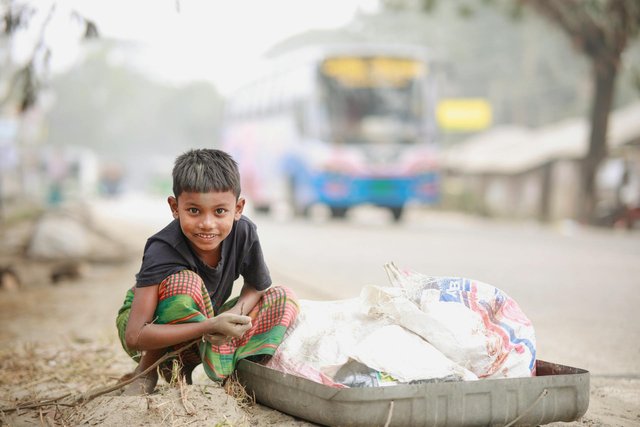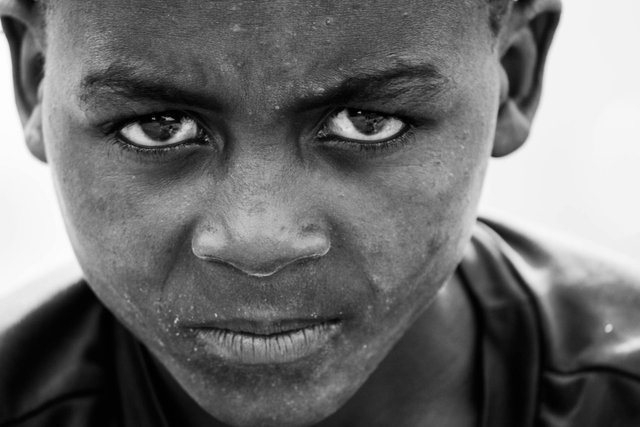The May contest #2 by sduttaskitchen|Child labour!
First of all, from my point of view, I condemn child labour. I mean, children are the future of our society and proper training will see to it if we through them will still have a safe environment.
Secondly, Down to my deep understanding and to leverage on my clear, accurate understanding of a complex problem like child labour. Reading through my article, a lot of insight will be mention and discuss. @sduttaskitchen thanks for putting up this contest. I see this as a means of raising awareness on child labour.
I am a lover of kids and should you are too. Please hit the contest link below and contribute your perspective and insight
https://steemit.com/hive-120823/@sduttaskitchen/the-may-contest-2-by-sduttaskitchen-or-child-labour
1. What are the main reasons behind child labour? Share your opinion. |
|---|

Source
This will come from my experience as someone who was involved in child labour but not as a victim because I wasn't forced. I got involved with purposeful intentions. At age 14, I lost my dad and my mum had five kids to look after. And I don't blame them for having so many kids because the means was there but life do happens to business people. In a nutshell, business go bad and dad died and mum left alone with five kids. Most time I got sent home from school cause I didn't pay my fees. Looking at things, I needed to get my tiny hands to work and the closest I could think of was "Cement-related construction labour”. The funny thing is, what ever field you find yourself, you will always have friends from there. So, I had a few friends then and some of them were a victim of child labour. Most of them were a victim to their parents while others to uncle, aunt and the society at large. You might wonder as to why children become victim of child labour to their relatives. Well, they were force to hawk in the streets so the entire family can feed. Most of them stayed back school to hawk while others upon returning from school had to enter the street to hawk. Upon all this, I had one special friend by name Emmanuel who was a victim and it was at this point I stopped doing cement related construction labour. And by then I was done with my secondary school though. Hopefully, my mum had rebuild our failed business and things changed for good. I then proceeded to college and the rest is history.
I think you should hear Emmanuel story.
Emmanuel was 12 years old and his world was not filled with schoolbooks or playgrounds but dust, sweat and the deafening hum of machinery. After his father fell ill and his mother struggled to feed his younger siblings. Emmanuel was forced to leave school and start working at a local cement factory. According to how he narrated the story to me. He said, each morning, before the sun rose, He would join other children sneaking through the factory’s back gate and His job was to carry heavy bags of cement, mix gravel and sweep thick clouds of dust and all for just 500(2.06 steem) naira a day. The air was so polluted that his chest often burned and his small hands were constantly bruised and blistered.
He accused the factory supervisor, saying after knowing the children had no one to protect them, the man was harsh and reduced rest breaks hours and any mistake led to verbal abuse or being sent home without pay. And one day, just like any other day he collapsed while lifting a cement bag. Instead of them to give him medical care, he was dragged outside and left under a tree to rest. Later that evening, a local volunteer group doing outreach in the area found him and reported the factory to authorities. Luckily for him He was rescued and placed in a rehabilitation program that offered education, counseling and hope. Has of today, Emmanuel is studying an engineering program today, while I am in college of health in the same university.
Now, from what I have observed both within and outside Nigeria, child labour is not just a matter of children being forced to work. This is entirely a reflection of systemic failure and the root cause, in my opinion, is poverty. When families are faced with the daily reality of “eat or starve,” the decision to send their children to hawk goods, beg on the streets or work in dangerous factory environments becomes a survival tactic. I mean, this is heartbreaking but very real.
1 In northern Nigeria, for instance, it’s common to see young boys (almajirai) begging for food and money, not because their parents hate education, but because there is no stable support system for them. As I once read in an online news blog, it discussed something about in Bangladesh, entire communities rely on garment factories, where children as young as 10 work long hours just to supplement the family income.
2 Another reason is the lack of access to quality education. Even where schools exist, the hidden costs like uniforms, books or transportation make them inaccessible for the poorest families. I’ve met children in rural Akwa Ibom State who walk over an hour daily just to get to a dilapidated classroom. Some eventually give up and start working on farms or selling sachet water by the roadside though the present government declared education to be free in the state and this policy is playing magic because the rate of kds getting back in the classroom has improve and the society is improving terms of human development.
3 Next is culture: Humans are deep rooted in cultural beliefs and this also play a role in child labour. In most notable societies, children are seen as economic assets as they are expected to start fending for themselves early, especially girls who are forced into domestic labour or early marriages. In parts of Ethiopia, it’s almost traditional for children to inherit their parents’ work, even if it means breaking stones or weaving carpets under harsh conditions.
4 This is not the least of what play a role in child labour but it suppose to be the strongest of what can help change it. Weak law enforcement enables child labour across the world even though many countries including Nigeria have child labour laws, enforcement is often poor. Employers know they can exploit children for cheap labour without facing real consequences. Regarding to many facts, many small factories deliberately hire children to avoid legal benefits due to adult workers.
2. Share some ways we can spread awareness that children need education instead of labouring! |
|---|
Taking my mind back has a kid. I think, this will be possible ways to go to get to me. So, to effectively spread awareness that children need education and not labour, we can take the following practical steps:
| 1. Use storytelling as a tool: |
|---|
a) I mean, kids love story especially for the very young ones and sharing real-life success stories of children who left labour behind and transformed their lives through education will leave in them an impression to want to be like that person. Imagine the likes of Emmanuel been Invited to speak at schools, churches, mosques and community gatherings. His story will hit to bone marrow.
| 2. Educate and engage parents and guardians: |
|---|
a) Just like what save Emmanuel life. Think of Conducting a community outreach in local languages to explain the long-term value of education to families and kids who don't care much about education and also to make it easy, consider using parent-teacher meetings and religious gatherings as platforms to challenge harmful cultural norms.
| 3. Leverage social media and digital campaigns: |
|---|
I so much appreciated @sduttaskitchen for this contest topic because she is leveraging on social media to create this awareness. So, to leavege more will mean to Create short, emotional videos and graphics highlighting the damage of child labour and the benefits of schooling. Just like hashtags matter in Steemit, the use of hashtags like #BooksNotBurdens or #LetChildrenLearn and engaging celebrities or influencers to share the message will go a long way to bringing positive impact.
| 4. Support grassroots initiatives in local communities: |
|---|
Should you want to get close to anyone, first know their culture and be a partaker and such person will naturally like you. So, organizing village drama shows or roadshows to communicate the message through local entertainment formats will be a pattern in which you aim for their heart to create this awareness. Also an event like launching community-driven events like “School Enrollment Week” will be an added bonus.
| 5. Partner with schools and NGOs for awareness programs: |
|---|
Looking into the community challenge as to why kids don't go to school matters and this will make much sense if partnered with NGOs to run mobile education clinics in hard-to-reach areas.
Imagine after figuring out what they need and coming up with something like “Back-to-School” campaigns and school fairs with free uniforms, books or even medical checkups.
| 6. Use public platforms and government-supported events: |
|---|
Whatever broader means to reach this people should be utilize and the likes of broadcasting child rights messages on radio and local TV stations during peak listening hours will be an achievable task.
Secondly, to integrate education-focused messages during national celebrations such as Children’s Day or Independence Day also count.
| 7. Empower students and youth ambassadors: |
|---|
I have been doing this one alot. Each time I go back for holiday I engage tomentor school-age children on importance of school and why they shouldn't miss out.
So, starting “Child Rights Clubs” in secondary schools to keep the conversation active among young minds is a plus to this awareness.
And trust me, by taking these practical steps, we can slowly shift mindsets and ensure that every child is seen not as a labourer but as a learner with potential.
3. How can we reduce or stop child labour? Share some tips. |
|---|
| The battle against child labour must be fought on all fronts: |
|---|
First, we must reduce poverty and that is the government job to do. This means creating jobs for parents and offering financial support to families in extreme need because when parents earn enough, their children won’t need to work. Many countries and my country Nigeria could adopt a system like Brazil’s Bolsa Família, where families receive money only if their children are in school.
Second, Just like what my present Governor in Akwa Ibom State is doing, free education for all citizen. we need to make education truly free and accessible though free tuition is not enough. Government should also provide uniforms, textbooks and school feeding programs. A hungry child cannot concentrate and many drop out because of that. The school feeding program introduced in some Nigerian states should be expanded to newly affected areas due to turmoil in the economy as of today.
Third, governments must enforce child labour laws seriously and this means regular factory inspections, harsh penalties for violators and public exposure of companies that exploit children. We must also stop informal sectors like street hawking or domestic child work from operating unchecked.
Fourth, communities must be empowered to protect their own children. Setting up child protection committees in villages and urban neighborhoods can help identify at-risk children. Local leaders, teachers and religious figures can act as watchdogs.
Fifth, support organizations doing real work. NGOs like Save the Children, ILO and UNICEF need more backing financially and politically to continue rescuing and rehabilitating victims of child labour.
Lastly, let’s listen to children. Their voices, fears and dreams must be at the center of any solution. Child participation should not be a slogan but should be reality.
Food for thought: Is child labour just about poor kids working?
My opinion: This is about failed systems, ignored laws and generations of neglect.
My advice: To end it requires courage, collaboration and compassion.
Thank you for reading.
I invite on @edu-chemist @basil20 @bossj23 to participate in the contest.
Best Regards @berda01 |
|---|



Upvoted! Thank you for supporting witness @jswit.
https://x.com/Princewill65291/status/1924040033842921743?t=wyDAo0qtJT7PUvJtzRa9Fg&s=19
You have a very good write up there. You have carefully outlined ways we can reduce child labour and this is the area that gots my interest. I was thinking you would mention Government abstentions from poverty. Because that's even a great source and engine pioneering child labour..... I rest my case for now...
Thanks for the invitation
My leader, I appreciate your acknowledgment on my insight to
child labour and honouring my invite. 🙏
Your presentation clearly discusses child labor, reasons for it, and how to stop it. As you mentioned here, poverty is the main issue in child labor. I wish you success